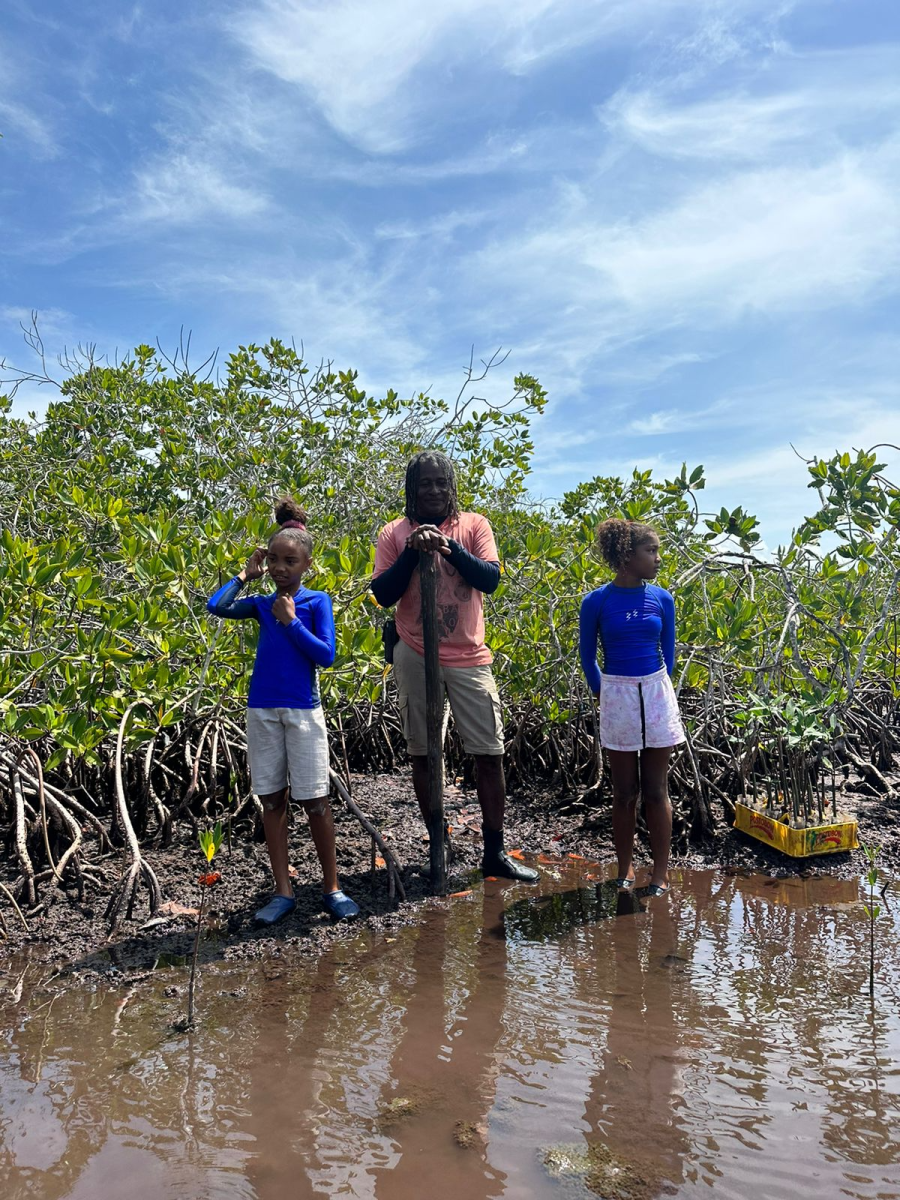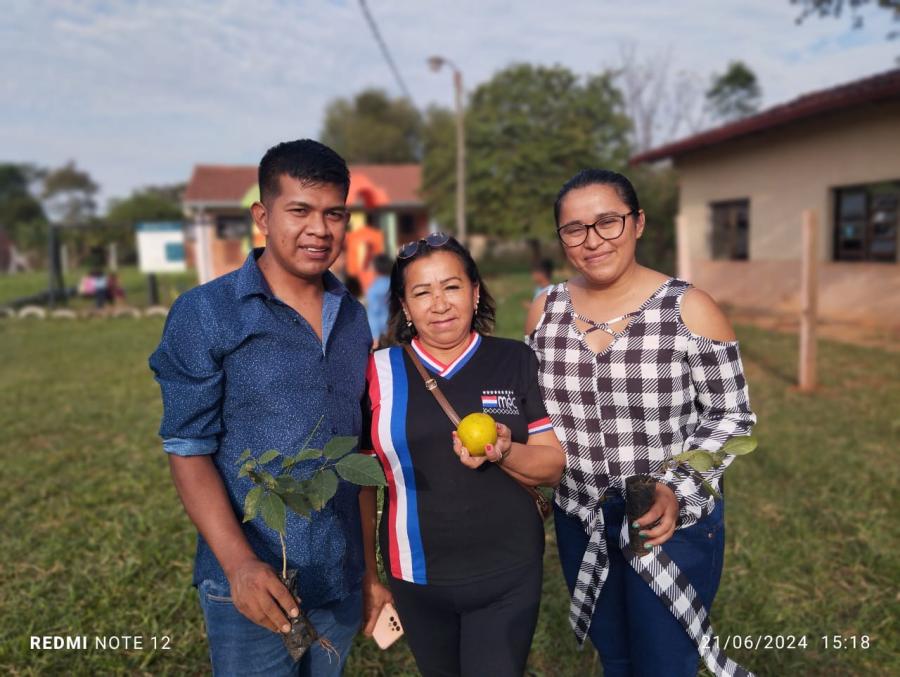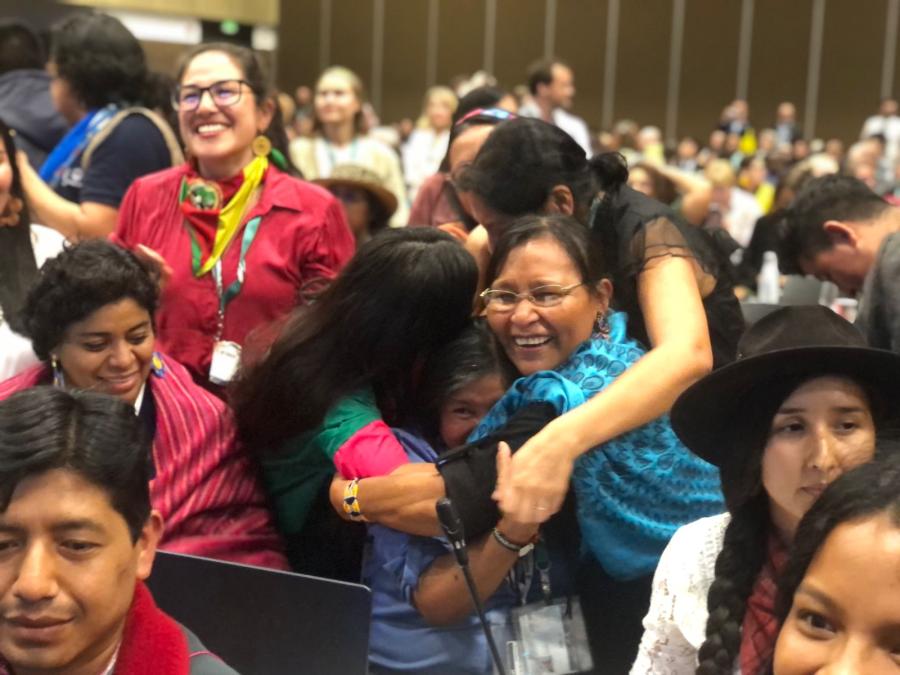
Ryann Dear
On March 20, the Northeastern University School of Law in Boston, MA hosted a panel discussion titled “Indigenous Rights in Development: Consent and Consultation” to address the obstacles Indigenous Peoples have encountered in securing their rights in the face of development projects. Deputy Executive Director Mark Camp represented Cultural Survival at the event. Christine Halvorson, Program Director at the Rainforest Foundation also spoke, in addition to Adam Cernea Clark, a Law student at Northeastern, spoke on behalf of Oxfam America, standing in for Chris Hufstader.
Mark Camp began the evening by asking, “How do we turn rights into reality?” He put this question in the context of the UN Declaration on the Rights of Indigenous Peoples, adopted in 2007 by the UN General Assembly, which states that Indigenous Peoples have the right to Free, Prior and Informed Consent (FPIC), specifically in regards to development projects that threaten their lands and cultures. Article 28 of the Declaration states, “Indigenous Peoples have the right to redress…for the lands, territories and resources which they have traditionally owned or otherwise occupied or used, and which have been confiscated, taken, occupied, used or damaged without their Free, Prior and Informed consent.”
Although the Declaration was adopted almost six years ago, Camp emphasizes that many Indigenous communities still do not know about the international legal rights mechanisms that protect their rights. Furthermore, it is not clear what the laws mean in practice, even for the communities who are aware of the Declaration. Camp states, “We’re in the midst of defining, on a day-to-day basis, what Free, Prior and Informed Consent means.”
Adam Cernea Clark addressed another problem with the current FPIC laws. Many development companies appear to comply with the Declaration by “informing” and “submitting information” to the Indigenous communities whose lands they are affecting. However, Clark stated, “If you can’t process the 400-page environmental impact statement, you’re not going to know what you’re agreeing to or what’s at stake.” The term “Informed” is problematic.
Oxfam America is trying to solve this problem through capacity building and training for Indigenous Peoples who are in contact with development agencies. Educating local communities and NGOs to fight situations before they start could lead to a different outcome. Moreover, trained individuals can pass on their knowledge to others and create a more informed community. Clark gave the example of Marlin Mine in Guatemala, where the people of San Miguel Ixtahuacan, including many Mam and Sipakapense, struggle to fight off large-scale industrial mining. From the perspective of the people living near the mine, the mining company is digging into the heart of Mother Earth. “Without self-determination, that whole worldview is going to go extinct,” said Clark.
The Rainforest Foundation works to protect the rainforests of Central and South America and to secure the rights of Indigenous Peoples. Christine Halvorson presented and critiqued Peru’s Consultation Law, which she said doesn’t meet international standards and only applies to development projects with a direct impact—those located on directly on Indigenous lands, not including any lands affected downstream or through groundwater. Halvorson noted that an estimated 70 percent of the Peruvian Amazon is covered in oil concessions; consequently, the FPIC is especially important there. The situation has led to increased social conflict and the criminalization of social protesters. In 2012 alone there were 13 conflicts with oil companies.
One area in Peru affected by oil concessions is Lot 1AB (now known as Lot 192), located in Loreto and home to several thousand Achuar and Quechua Indigenous people. The community has responded to Pluspetrol’s presence in many ways, including: environmental monitoring programs which train youth to go out and measure water, document oil spills, and bring their information back to the public to be used to fuel advocacy movements; negotiations with Pluspetrol; and the formation of a coalition of all four federations representing the river basins of Lot 1AB.
Consultations to contract new oil concessions are currently stalled, as inhabitants of the area want the environmental damage caused by previous concessions to be solved before they grant new concessions. Indigenous Peoples and Pluspetrol are in the process of agreeing on community demands. Halvorson stated that the situation in Lot 1AB “puts FPIC into a broader context; it can be a linchpin that connects to a whole lot of other rights.”
Halvorson said that the next step includes more participation from Indigenous communities and translating their rights into reality, “We must spend time with the communities and see what their needs are, what they see for the future…Indigenous Peoples need to be in the room, at the table, with an equal seat.”



